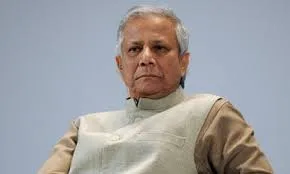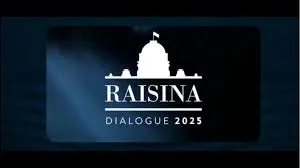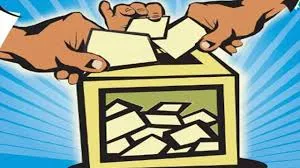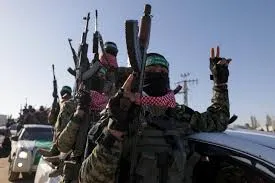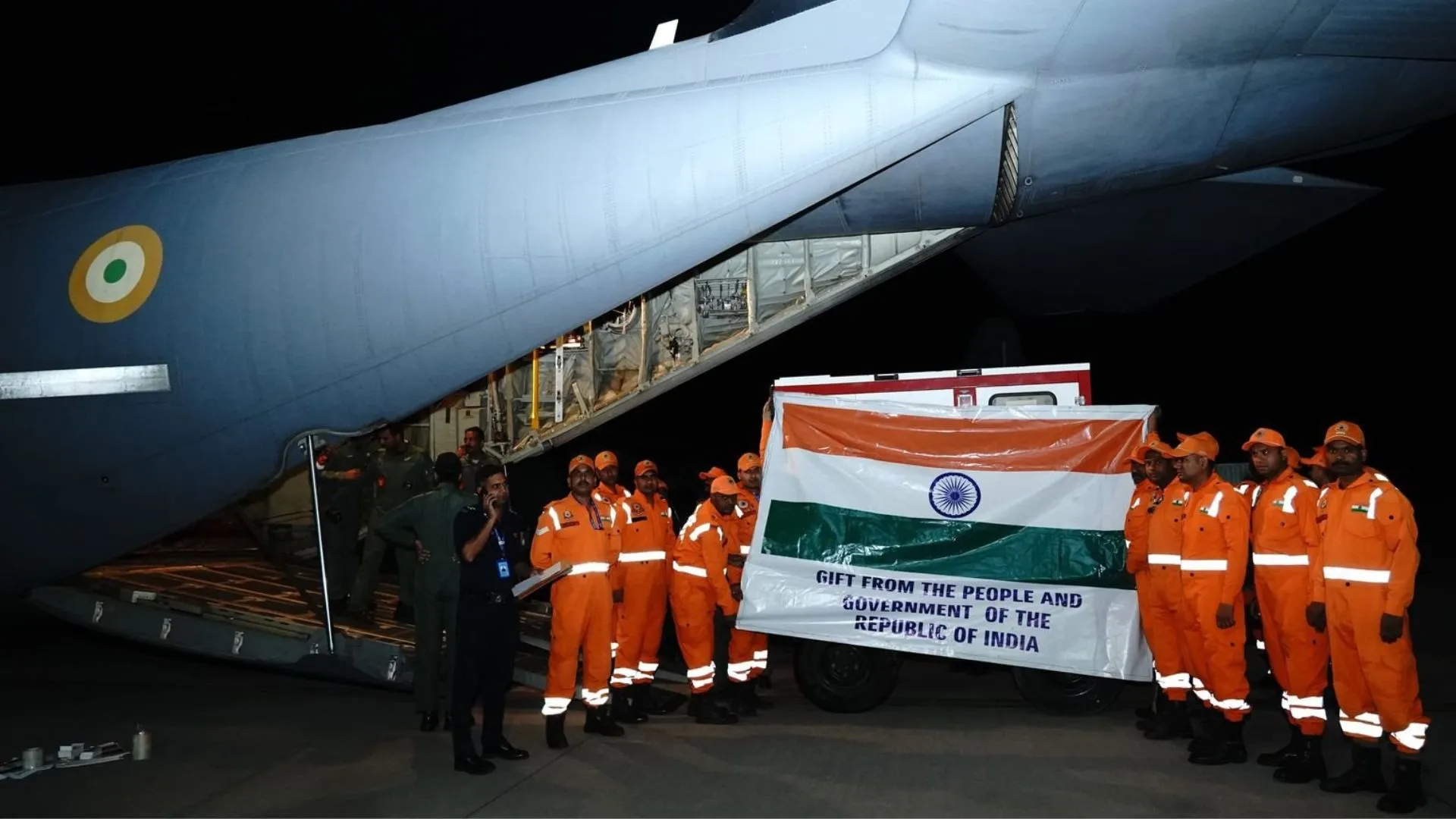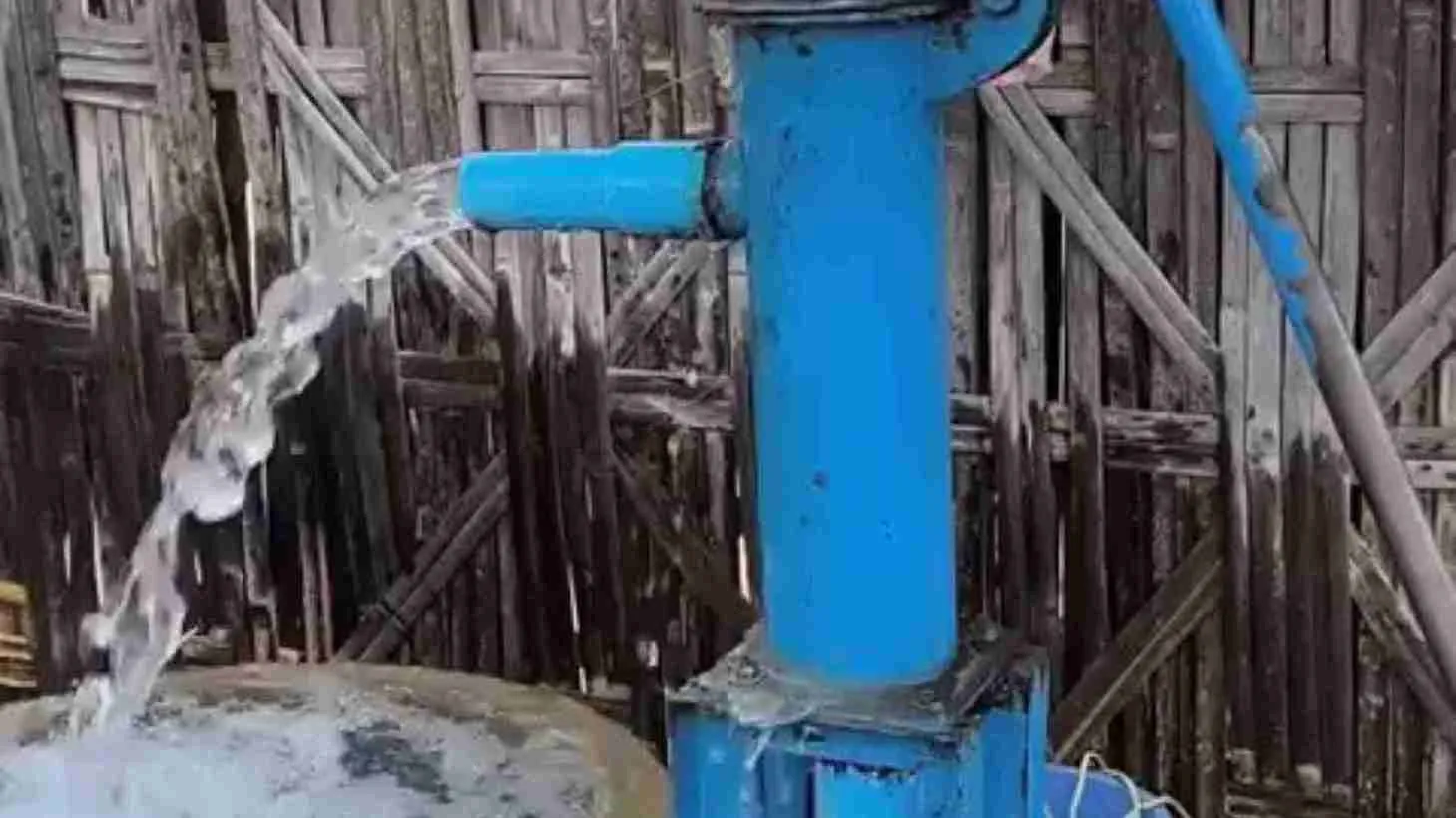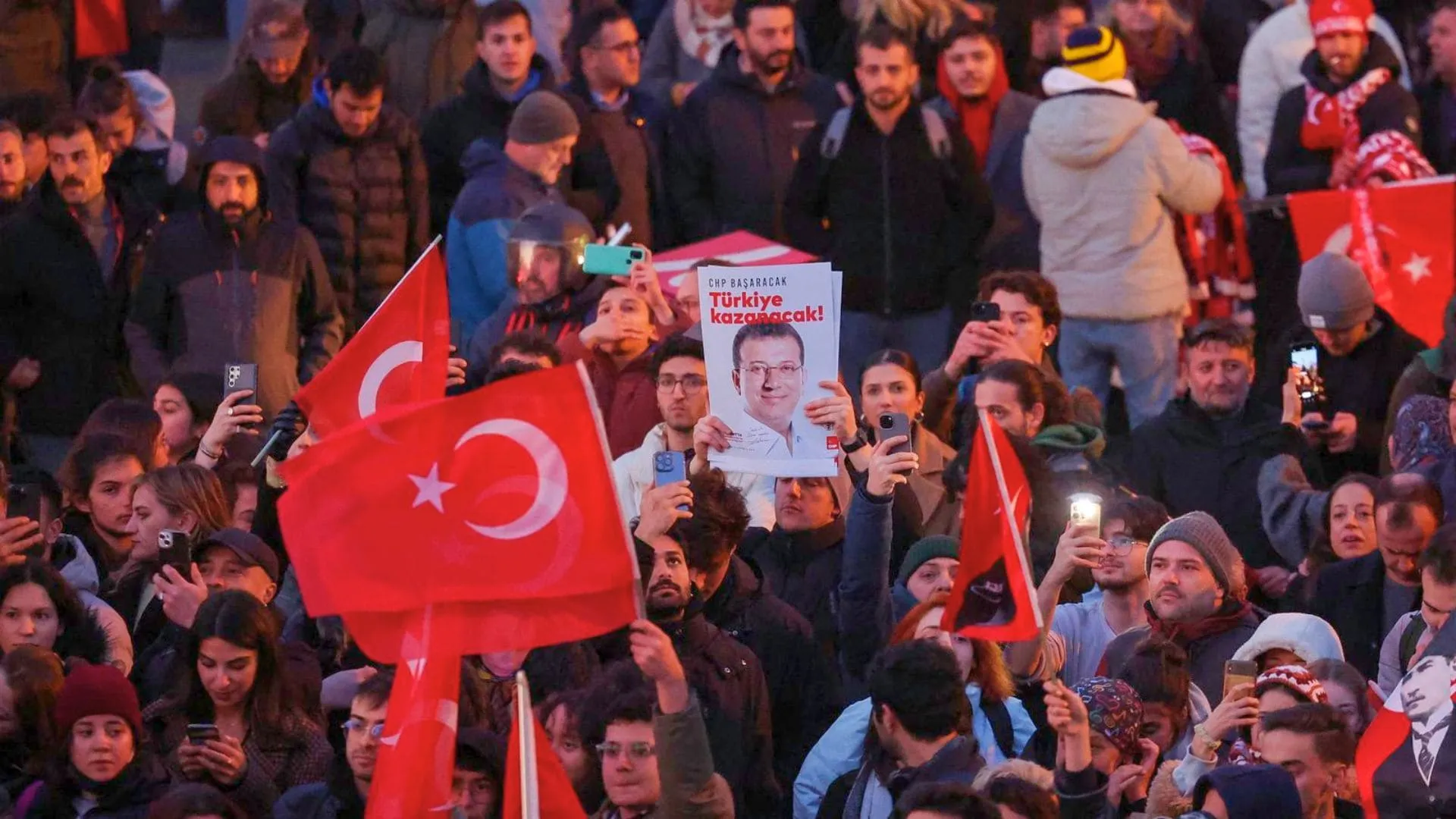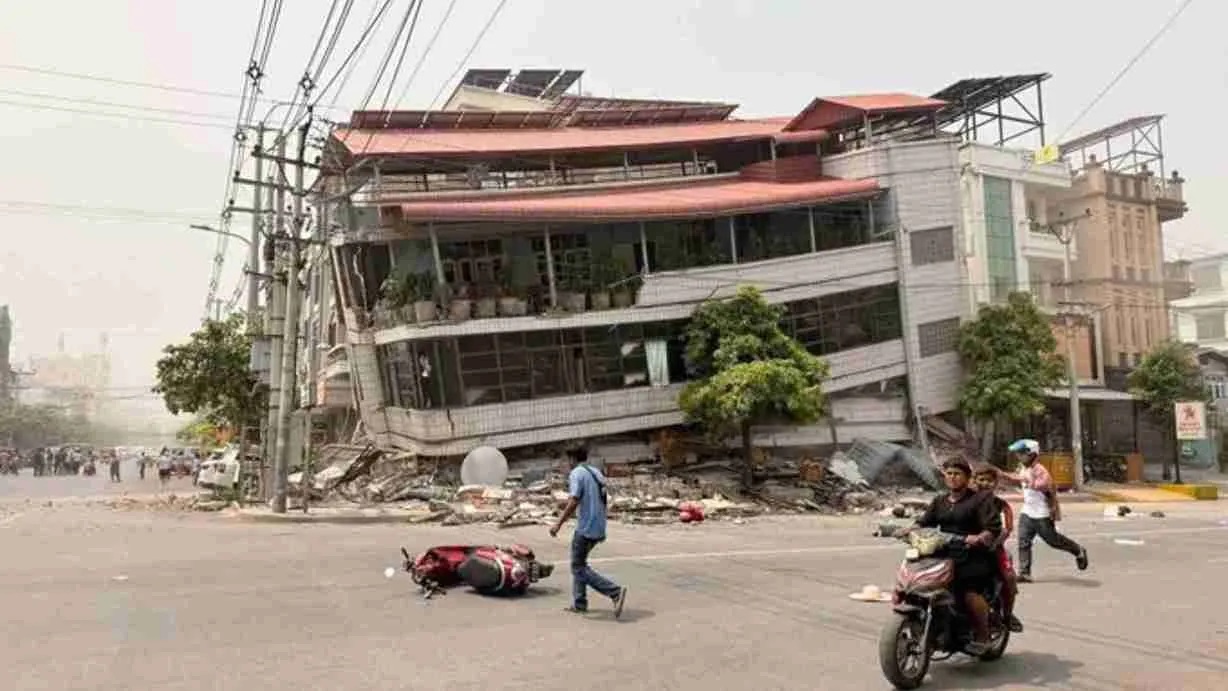On 9 May, Imran Khan, Pakistan’s former prime minister, was arrested and dragged from the Islamabad High Court, by Pakistan Rangers, as he appeared to face charges in multiple graft cases. The arrest comes a day after the Pakistan army accused him of levelling baseless allegations against Major General Faisal Naseer of ISI. Khan had accused the senior officer of plotting to kill him. The military’s Inter-Services Public Relations (ISPR) wing said in a statement that “this fabricated and malicious allegation is extremely unfortunate, deplorable and unacceptable”. On 7 May, while addressing the nation through a video link, he said that the constitution had made it clear that elections should be held within 90 days. Criticizing the incumbent government, he said, “These people [the rulers] are ready to violate the constitution and stand against the Supreme Court.” He also criticised the country’s former army chief, General (retd.) Qamar Javed Bajwa. Imran alleged that Bajwa had imposed corrupt individuals on Pakistan who had no stake in the country, and over 60 per cent of the current Federal Cabinet was on bail in corruption cases when they were given government positions.
Since he was voted out of office in a no confidence motion on 10 April 2022, Imran Khan was charged in several cases including allegations ranging from corruption to terrorism to rioting. Interestingly, corruption charges against politicians by the army backed “establishment”, is not a novel allegation in Pakistan. But, in an unprecedented chain of events, the party workers and supporters of Pakistan Tehreek-e-Insaf (PTI) attacked various military compounds in several parts of the country, to mark protest. Lahore Corps Commander’s residence was vandalised by PTI supporters. They also violently barged inside the General Headquarters in Rawalpindi. Unfortunately, four people were killed and about 27 injured in violent protests in across the provincial metropolis of Islamabad, while hundreds of violent protesters stormed and set Radio Pakistan Peshawar building on fire. Reportedly, section 144 has been imposed in Lahore, Peshawar, and other cities of the country.
Later, on May 10, Islamabad district and sessions court indicted Imran Khan in the Toshakhana case, in which he is accused of taking gifts in an illegal manner. The Election Commission of Pakistan (ECP) had sought proceedings under the criminal law against Khan in the case. Last year in October, the ECP, in a consensus verdict in Toshakana reference, debarred Imran Khan and ruled that he was no more a member of the National Assembly. Criminal proceedings will be initiated against the PTI chairman for misdeclaration, read the verdict.
Meanwhile, the ‘higher authorities’ have ordered the arrest of PTI leaders. Teams have been tasked with raiding the residences of PTI leaders Kamran Bangash, Fazal Elahi, Arbab Jahandad, and Shaukat Ali. Also, eminent leaders like Fawad Chaudhry, Asad Umar and Shah Mahmood Qureshi have been arrested from various locations of the country.
The relationship of Pakistan army with the political system (civil-military relationship) of the country can be characterised into five steps, as explained by Stephen P. Cohen in his well celebrated book The Idea of Pakistan. In the first step, the army warns what it regards as incompetent or foolish civilians. Second, a crisis leads to army intervention, which is followed by the third step attempts to ‘straighten out’ Pakistan, often by introducing major constitutional changes. Fourth, the army, faced with growing civilian discontent, ‘allows’ civilians back into office, and fifth, the army reasserts itself behind a façade of civilian government, and the cycle repeats itself.
Moreover, the arrest of Imran Khan is not an isolated incident. The army and political leaders have always been at loggerheads with each other, since many years in Pakistan. Huseyn Shaheed Suhrawardy, who served as fifth Prime Minister of Pakistan was arrested in 1962, as he refused to endorse General Ayub Khan’s seizure of power. He was banned from politics and put in solitary confinement in the Central Jail of Karachi without trial on concocted charges of “anti-state activities” under 1952 Security of Pakistan Act. The tussle between Zulfiqar Ali Bhutto and General Zia-ul-Haq is well known. Bhutto was arrested in 1977, for conspiring to murder a political opponent in 1974. After he was released by Lahore High Court, within three days he was rearrested under Martial Law Regulation 12, and eventually hanged in 1979. His daughter, Benazir Bhutto, the first female Prime Minister of a Muslim country, also had to go through dreadful times because of army. Since 1980s, till her assassination in 2007, she was imprisoned numerous times in various cases of corruption and disqualified from holding public office by the Ehtesab Bench of the Lahore High Court. Her political counterpart, Nawaz Sharif also faced arrest and exile from Pakistan for a considerable period, after Pervez Musharraf took power in a ‘bloodless coup’ in 1999. Interestingly, in 2007, Nawaz Sharif returned to Pakistan after being cast into exile by Musharraf in 1999. On his return to Islamabad, the airport was sealed and he was arrested within hours of his return and sent to Jeddah, Saudi Arabia, to complete the three remaining years of his 10-year exile. Later in 2018, he was arrested twice in various corruption cases and in November 2019, he was allowed to leave the country for medical treatment. He has since not returned to Pakistan. PML-N’s Shahid Khaqan Abbasi served as the prime minister of Pakistan from January 2017-May 2018, was arrested for corruption. Later, he was granted bail and released from Adiala Jail in 2020. The current prime minister and brother of Nawaz, Shehbaz Sharif, was arrested September 2020, after the Lahore High Court rejected his bail in a money laundering case. He was released nearly seven months later.
While, commenting on the ongoing situation, Mazhar Abbas, Assistant Professor in History at Government College University Faisalabad, and a regular contributor to The News on history and national politics, stated, “It’s not about elections only but you can say it is a tug of war, power struggle, between the establishment dominated by the army: Miltablishment and Imran Khan. The Miltablishment consists of PDM (Pakistan Democratic Movement) and law enforcement agencies. Imran Khan was in a way exerting pressure on the Miltablishment for provincial elections of Punjab, and as it is the most populous state, a perceived victory of Imran Khan would have set a course of event for Pakistan. Generally, the elections happen simultaneously in all the provinces, but Khan is of the opinion that as the provincial assembly remains dissolved, following the constitution, within 90 days, elections are to be conducted. IK has mass support but the Miltablishment will control it in a couple of days even if it has to impose curfew or emergency. According to my basic understanding this arrest is pre-planned. In future it can be predicted that Imran Khan will be imprisoned for a considerable period of time, and the members of PTI would be forced to isolate Imran Khan. The elections (scheduled in October) might also be delayed for 1-2 years; assistance from the technocrats will be taken; and if necessary, emergency might be imposed. There is not much possibility of Imran Khan to make a political comeback. PTI in a way is also at fault, as it has pushed the situation to point of no return. The incident in a way has ushered the PTI for a test, whether the party would be able to withstand the pressure resolutely. But then there are bleak chances.”
Imran Khan is unlikely to receive military assistance in the future. By resorting to violence, the PTI has effectively eliminated all prospects for dialogue and rapprochement with the civil-military leadership. Khan’s detention comes as Pakistan is on the danger of failing on its obligations. The country is experiencing an extensive financial crisis. Increasing inflation, unemployment, and hunger have made life extremely difficult for the masses. To keep its economy afloat, the country desperately needs outside investment. Due to a lack of economic reforms, budgetary restraint, and political stability, the International Monetary Fund (IMF) has been reluctant to issue cash for months. Political tensions are expected to rise as a result of the arrest of a senior figure from one of Pakistan’s most well-liked parties. Pakistan is currently in a state of tension as it deals with yet another political issue that has the potential to fuel further unrest and instability in the nation.

Dr Sanchita Bhattacharya is Research Fellow, Institute for Conflict Management.



